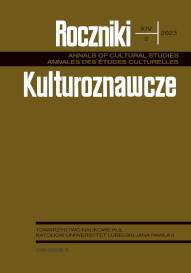IDEA WSPÓŁCZESNYCH OGRODÓW EKOLOGICZNYCH W KONTEKŚCIE STAROŻYTNEJ I ŚREDNIOWIECZNEJ WIEDZY AGRONOMICZNEJ ORAZ OGRODNICZEJ
THE IDEA OF MODERN ECOLOGICAL GARDENS IN THE CONTEXT OF ANCIENT AND MEDIEVAL AGRONOMIC AND HORTICULTURAL KNOWLEDGE
Author(s): Piotr KuleszaSubject(s): Cultural history, Agriculture, Social history, Ancient World, Rural and urban sociology, Sociology of Culture, Environmental interactions, 6th to 12th Centuries, 13th to 14th Centuries, 15th Century
Published by: Towarzystwo Naukowe KUL & Katolicki Uniwersytet Lubelski Jana Pawła II
Keywords: ecology; sustainability; Cato; Warron; Columella; Palladius; agronomy; horticulture; cultivation; medieval; Pietro de Crescenzi;
Summary/Abstract: The increasing environmental changes and the progressive climate crisis are forcing a constant search for the causes of the problem. It is seen not only in technological progress, industrialization and consumptionism, but in man’s negative attitudes towards nature. One of its solutions is the formation of a new pro-ecological attitude, which operates not only in the natural, but also in the social and cultural context. A manifestation of contemporary ecological thought are gardens, which have now acquired the status of a timeless ecological topos and are becoming an ecosymbol of man's relationship with the environment. In this sense, gardens are a place of coexistence between man and nature, which is treated as a common home — an oikos. The purpose of this article is to explain the contemporary idea of ecological gardens and to try to trace their origins in Roman agronomic literature and medieval gardens. In addition, to relate the garden practices and solutions of the time to the modern ecological meaning.
Journal: Roczniki Kulturoznawcze
- Issue Year: 14/2023
- Issue No: 2
- Page Range: 115-140
- Page Count: 26
- Language: Polish

